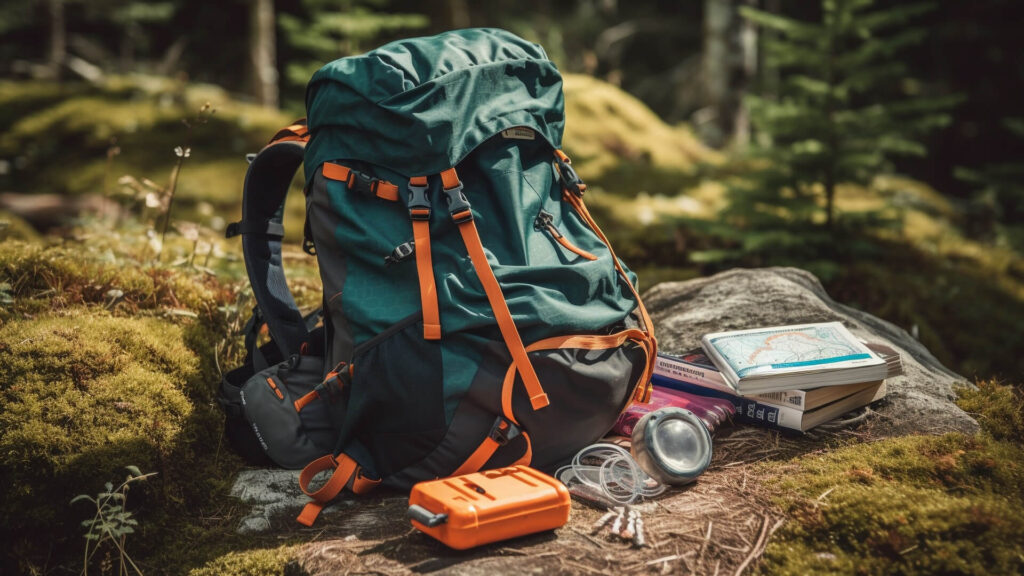Turkish Trails and Peaks: Hiking and Climbing Tips for Every Adventurer.
Hiking is a fantastic activity for beginners, offering a range of benefits for both the body and mind. Not only does it provide an opportunity to immerse oneself in nature, but it also offers a great way to stay fit and healthy. Unlike other intense workouts, hiking allows beginners to start at their own pace and gradually build up their endurance. Additionally, hiking provides a chance to disconnect from the digital world and reconnect with the beautiful landscapes that surround us.
One of the great things about hiking is that it can be enjoyed by people of all fitness levels. Whether you’re a beginner looking to take your first steps on the trail or someone who wants to challenge themselves and tackle more difficult terrain, there is a hiking trail out there for you. Hiking offers a low-impact workout that can burn calories, improve cardiovascular health, and strengthen muscles. It’s a versatile activity that can be tailored to your own abilities and preferences.
Essential hiking gear for beginners

Before embarking on your first hike, it’s important to ensure you have the essential gear to make your experience safe and enjoyable. Here are some of the must-have items for hiking beginners:
Proper footwear: Invest in a good pair of hiking shoes or boots that provide ankle support and have a good grip on different terrains. Your feet will thank you for it!
Appropriate clothing for Hiking: Dress in layers and choose moisture-wicking fabrics to keep you comfortable and dry during your hike. Don’t forget a hat and sunglasses to protect yourself from the sun.
Backpack: A backpack is essential for carrying all your hiking essentials, such as water, snacks, a first aid kit, and extra layers of clothing. Look for a backpack with adjustable straps for a comfortable fit.
Navigation tools: While many hiking trails are well-marked, it’s always a good idea to carry a map and compass or a GPS device to help you navigate in case you get lost.
Water and snacks: Stay hydrated by carrying enough water for the duration of your hike. Pack nutritious snacks like trail mix or energy bars to keep your energy levels up.
By ensuring you have these essential items, you’ll be well-prepared for your first hiking adventure.
Choosing the right hiking trail for beginners

When it comes to choosing a hiking trail for beginners, it’s important to consider factors such as distance, elevation gain, and difficulty level. Here are some tips to help you find the perfect trail for your skill level:
Start small: Begin with shorter, less challenging trails to gradually build up your stamina and confidence. Look for trails with gentle inclines and well-defined paths.
Research trail difficulty: Before hitting the trail, do some research to find out the difficulty level of the hike. Many hiking websites and apps provide information on trail conditions, elevation gain, and user reviews.
Consider your fitness level: Be honest with yourself about your fitness level and choose a trail that matches your abilities. It’s better to start with an easier trail and gradually progress to more difficult ones.
Check local regulations: Some hiking trails may have restrictions or permits required, so make sure to check local regulations before heading out. This will ensure a smooth and hassle-free experience.
Seek local advice: Reach out to local hiking clubs or outdoor stores for recommendations on beginner-friendly trails in your area. They can provide valuable insights and suggestions based on their own experiences.
By taking these factors into consideration, you can choose a hiking trail that is suitable for your skill level and have an enjoyable experience on the trail.
Preparing for your first hike

Before setting off on your first hike, it’s essential to prepare both physically and mentally. Here are some important steps to take:
Start a fitness routine: Hiking can be physically demanding, especially for beginners. To ensure you’re adequately prepared, incorporate regular cardio and strength training exercises into your fitness routine.
Practice hiking with a loaded backpack: As you’ll be carrying a backpack during your hike, it’s important to get comfortable with the added weight. Gradually increase the weight in your backpack during training hikes to simulate the conditions you’ll face on the trail.
Check the weather and trail conditions: Before heading out, always check the weather forecast and trail conditions. This will help you determine the appropriate clothing and gear to bring, as well as ensure your safety on the trail.
Inform someone of your plans: Let a friend or family member know about your hiking plans, including the trail you’ll be hiking and your estimated return time. In case of an emergency, it’s important to have someone who knows your whereabouts.
Pack essentials: In addition to the hiking gear mentioned earlier, make sure to pack essentials such as a headlamp, extra batteries, a whistle, a multi-tool, and a fully charged cell phone. These items can come in handy during unexpected situations on the trail.
By taking the time to prepare both physically and mentally, you’ll be ready to tackle your first hike with confidence and enjoy the experience to the fullest.
Feel free to share this page with those you believe might be interested or stand to benefit from it.




